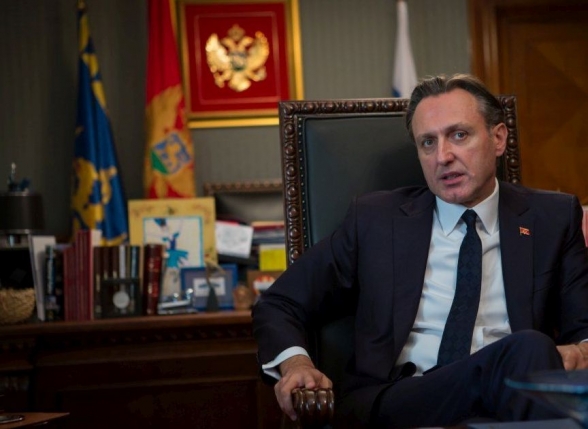“Esteemed,
Presidential election of 2013 was challenged by a significant part of the public, both in its initial stage and after the result was announced. It was followed by protests and a boycott of the Parliament. In those difficult conditions, we initiated the painstaking process of building trust in the election process, and the adoption of the Conclusions on building trust in the election process of 31 May 2013 represented the first step of it.
Several-month long work of the Working Group and Collegium of the President of the Parliament of Montenegro have resulted in the adoption of legal solutions aimed at improving the electoral legislation with broad consensus. Those included the obligation of forming ad-hoc bodies that will supervise the work of state bodies in the election matters.
The process of building trust has enabled a new cohesion in the Parliament regarding fulfilment of obligations arising from the European integration and led to the adoption of XVI Amendments to the Constitution of Montenegro and their implementation through election of judges of the Constitutional Court and Supreme Public Prosecutor, with qualified majority.
The achievements that we have made in this stage of building trust show that democratic and constructive dialogue may bring huge results in reaching the main national goal - full membership in the European Union.
Parliamentary democracy in Montenegro has demonstrated capability to face serious challenges and to bring prosperity to the citizens of Montenegro. Those achievements have bound us to exit this crisis, caused by non-fulfilment of the previous challenges, with permanently stable and undisputed election democracy.
Dear colleagues,
Following the presidential election and last round of local elections of 2014, the fact is that trust in the democratic election process has deteriorated, which still has a strong appearance through:
- affair “Recording”, whose legal and political resolution has not been completed, as the European Commission has reminded us in its report of this year,
- protests taking place in recent months, which, as declared, have been aimed at establishing a transitional government tasked with organising free elections
- cases of anti-European and non-democratic actions, with elements of political corruption, at local, and from recently at state level.
- media scene, assessed in the European Commission’s report as characterised by the lack of progress with the appearance of “smear campaigns” targeted against prominent civil society activists and some politicians.
These and certain other elements are indicative of the state of political crisis, which sends negative messages about Montenegro and they may result in stopping our state at international reform agenda. All of that may cause a permanent damage to the economy, thus endangering all aspects of socio-economic position of the citizens
Being convinced that all of us are devoted to the good of the citizens of Montenegro, let me invite you to the first meeting of the highest-ranking representatives of political entities, which will take place in the White Room of the Parliament of Montenegro, on 1 December (Tuesday), at 12:00.
I propose the parliamentary dialogue to be conducted in two stages:
1. Analysis of the election legislation and its full implementation, as well as consideration of other aspects of improving the election process in all fields influencing on the building of the election trust.
2. Consideration of legal and political model, which would ensure the implementation of agreed solutions.
The level and manner of further development of the parliamentary dialogue would be a topic of our first meeting, and by this letter, I only give thematic background which will be finally shaped on the basis of your additional proposals. Following the talks held with representatives of the civil sector, I am free to inform you about their willingness to professionally contribute to this parliamentary dialogue, and thus additional growth of confidence in its result.
Respectfully,
Ranko Krivokapić”
![]() A list of presidents of political entities to whom the letter was addressed
A list of presidents of political entities to whom the letter was addressed








